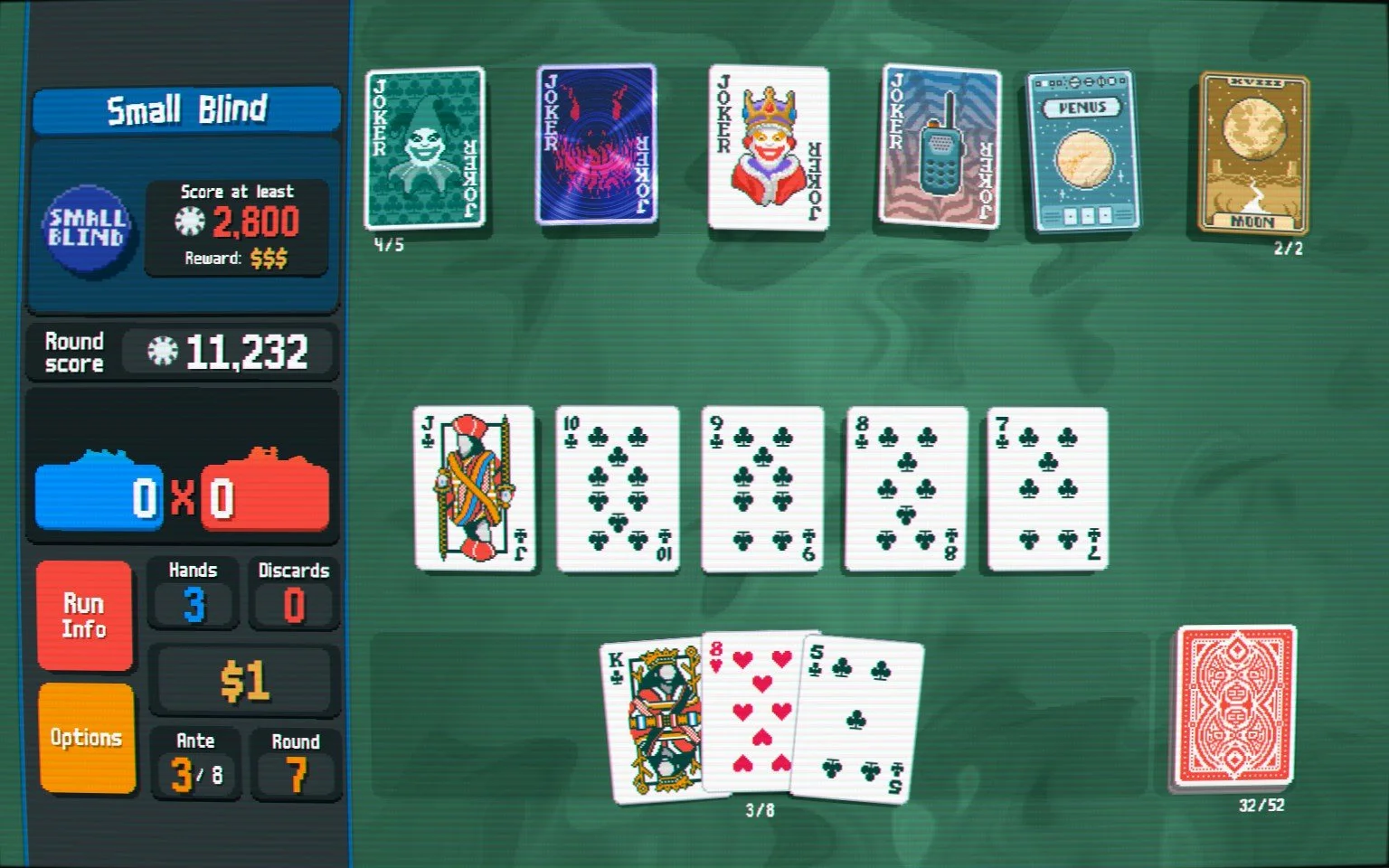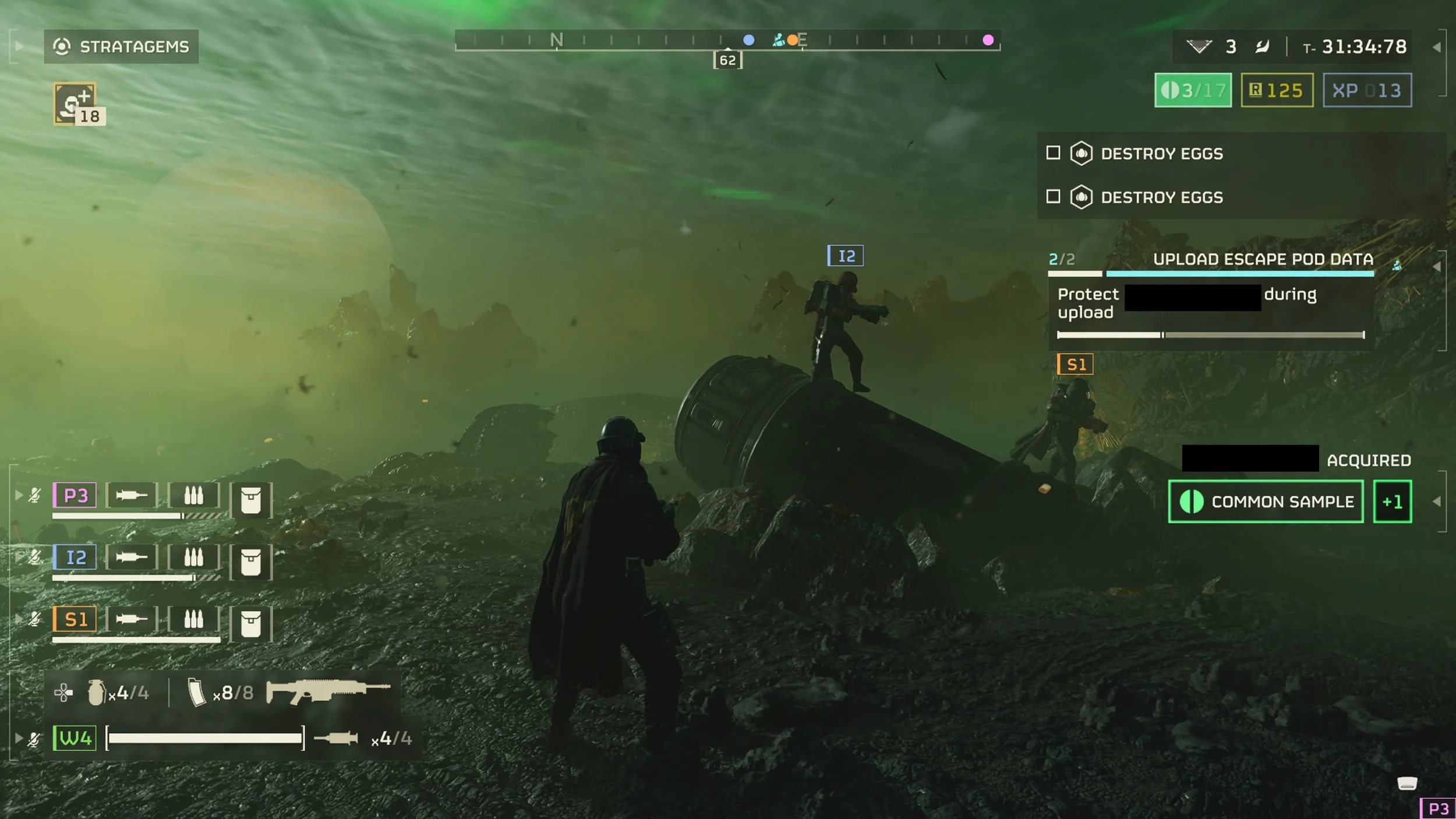Balatro Finds Order in Chaos
Of course Balatro isn’t the first card-based roguelike. Balatro isn’t even the first poker-based roguelike (consider, for example, 2022’s Poker Quest: Swords and Spades). But Balatro is the first poker-based roguelike that reminds me of 1992’s Mah Jongg for Windows, and that’s why I can’t stop playing it.
Let me explain.
I first started playing video games when they could only be played on a hulking, huffing desktop machine with a fifty-pound CRT monitor in the “computer room,” a sort of technological shrine where we would all sit and hum in unison with the dialup connection noise, like it was church. “Screen time” was a precious and severely limited affair, which meant that it was usually easier to get in a couple rounds of Tetris than it was to get to the end of my first love: Mah Jongg for Windows. It was a solitaire game that required you to dismantle a tile tower by finding matching pairs. These pairs could only be removed if you didn’t threaten the structural integrity of the tower by doing so. It wasn’t The Last of Us or What Remains of Edith Finch. It was something even more intoxicating: the brain’s pure freedom to do the thing it loves more than anything else, which is to spot and make patterns. Eventually, I would hit this event horizon where almost all the available tiles could be made into pairs; there was nothing more satisfying to my developing brain than that cascading moment when all the remaining pieces of the pattern fell into place. Like a quantum physicist, I was in awe of the interplay of order and chaos. I was about seven years old, and I was in love with computer games because they were random but predictable, challenging but safe. Balatro brings that feeling back to life for me in a way no other game has since the 90s. It’s that good.
Screenshot by the author.
Balatro is so popular that you may already know how it works, but here’s a quick rundown: you build poker hands out of a random set of cards, trying to beat a given score before your number of hands runs out. Each hand value is calculated with a combination of hand values, card values, and a multiplier. That’s it. That’s the game. Every third round, there’s a boss that makes it extra hard for you to get more points, and if at any point you fail to meet the point threshold (the “blind”), your run is over and you have to start again from the beginning.
However, just like Dead Cells gets really fun when you start to unlock the weapons and traps that work together in impressive combinations, Balatro lets you acquire jokers, tarot cards, and planet cards that can all buff your hands and your cards in various ways. Finding the right combination of these is the real key to victory—the closest I ever got, for example, was with a joker that increased the multiplier value of my face cards in combination with a joker that made the game treat all cards as if they were face cards. You might combine these with tarot powers that make certain cards extra lucky and with planet cards that make certain hands more valuable than others. When you’re really in the zone, you will find yourself chaining together seamless strings of patterns without even realizing that you are just doing math, and you’ll love it. If you think that math is the most predictable thing in the world, play a few rounds of Balatro and give yourself permission to be surprised. There is a real Archimedean joy in number for number’s sake in this game, and when you get close to making it all the way through a run, you might find yourself shouting “Eureka!”
Screenshot by the author.
It's true that Balatro might make you question the elasticity of the term “roguelike”—if roguelike is meant to indicate “a game that is reminiscent of the 1980 Unix-based game Rogue,” then it’s a misnomer here. Because there is no distinction between the character and the player, the phrase “permadeath” also doesn’t necessarily make a lot of sense, either (in a manner of speaking, if you die in Balatro, you do actually die in real life). You have to start over if you don’t make it to the end, but you don’t have a dead character on your hands. You’re just shuffling your deck and trying again. In the long run, the questions Balatro raises about what we mean when we talk about roguelikes are more interesting than the tiresome debate about what a roguelike “really is”; is it a roguelike because I have to start over when I die? Because I get buffs and debuffs? Because there are little trinkets available in between rounds? It’s more fun to consider the interpretive possibilities than it is to cram the game into a firm definition.
Here’s the thing: Balatro makes my brain feel good. It has order and surprises, math and mystery, planning and chaos. The retro graphics certainly help to bring me back to the computer room days, but the truth is that this is a game that I need now more than I ever would have needed it in the past. The science fiction author Ted Chiang says, in an explanatory note on his short story “Division by Zero”: “A proof that mathematics is inconsistent, and that all its wondrous beauty was just an illusion, would, it seemed to be, be one of the worst things you could ever learn.” Balatro proves the positive version of Chiang’s statement, that even though our lives blow past us at the whims of unpredictable forces, there is comfort—safety—in numbers.
Playstack London PR provided a review code for this game. As usual for GwG, PR played no part in the resulting writing or publication of these impressions.




